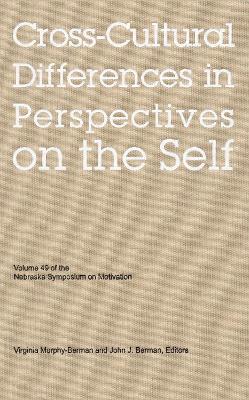Cross-Cultural Difference in Perspectives on the Self features the latest research in a dynamic area of inquiry and practice. Considered in these pages are cross-cultural differences in the idea of the person and in models of balancing obligations to the self, family, and community. Revisiting and questioning the concepts of self and self-worth, the authors investigate the extent to which factors traditionally associated with psychological effectiveness (intrinsic motivation; assuming personal responsibility for one’s actions; and feeling in control, unique, hopeful, and optimistic) are culturally bound. Hazel Markus and Shinobu Kitayama consider cultural differences in models of psychological agency; Joan Miller critiques the meaning of the term agency, analyzing the extent to which many popular theories in psychology rest on rather narrow Western models of behavior and effective functioning; Steven Heine calls into question the presumed universality of some forms of cognitive processing; Sheena Iyengar and Sanford DeVoe apply a cross-cultural perspective to better understand intrinsic and extrinsic motivation and the value of choice; Kuo-shu Yang questions the universality of the pervasive and popular “theory of self-actualization” formulated by Abraham Maslow; and finally, Ype Poortinga reexamines not only the cultural boundaries of theory but also the very meaning of the concept of culture itself.
- ISBN10 0803203292
- ISBN13 9780803203297
- Publish Date 1 December 2003
- Publish Status Active
- Publish Country US
- Imprint University of Nebraska Press
- Format eBook
- Pages 341
- Language English
